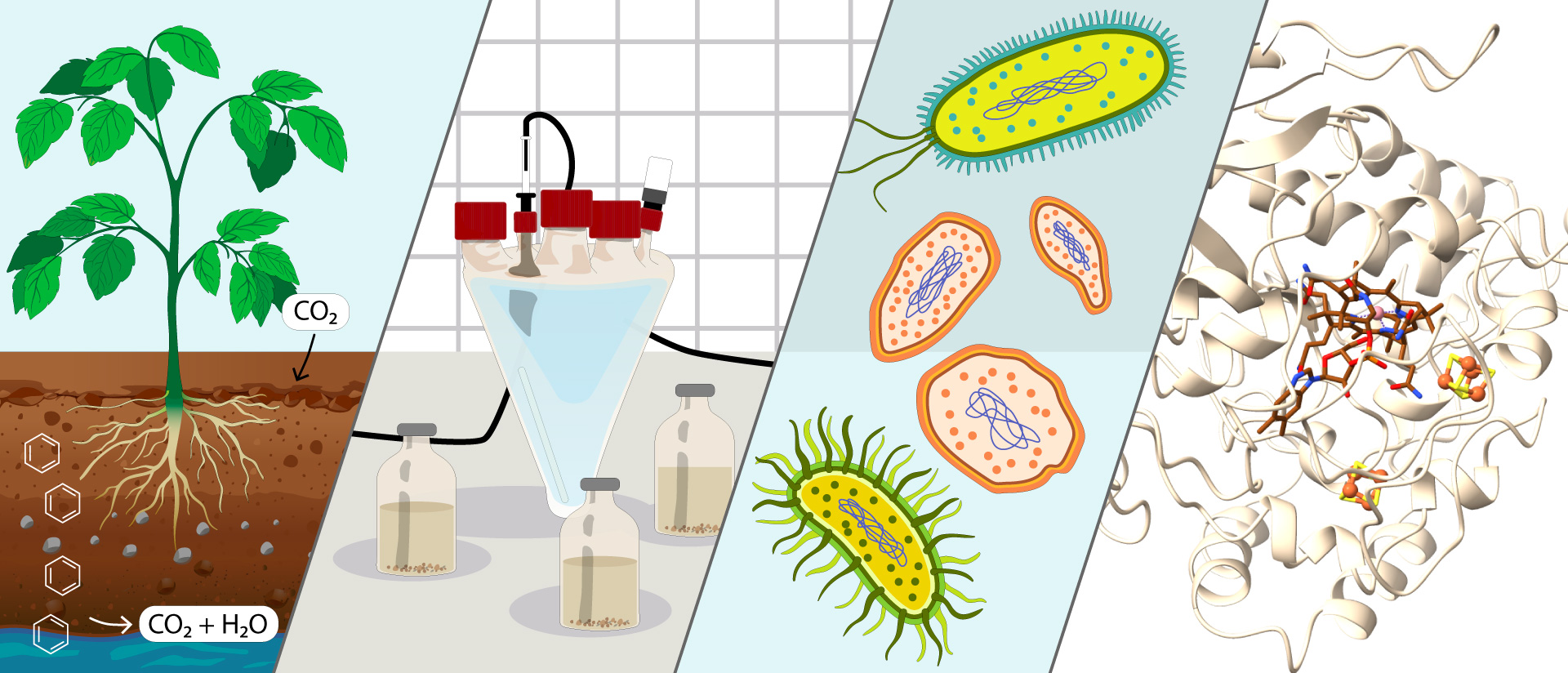
Department of Molecular Environmental Biotechnology (MEB)
Our primary goal is to contribute to efforts to reduce greenhouse gas emissions and to mitigate climate change while preserving natural environments and biodiversity. For that, we investigate microbially catalysed processes in natural and technical environments and characterize the molecular basis. We search for responsible organisms, enzymes, and encoding genes in soils, wastewater and (constructed) wetlands. We look at the transformation of environmental chemicals such as solvents, pesticides, plastics, antibiotics and other pharmaceuticals, but also at the formation of soil organic matter. We develop tools to monitor and control such processes and provide management options for end users and regulators.
Major research topics:
- Molecular basis of electrobiosynthesis and methylation
- Anaerobic transformation of micropollutants in waste water and constructed wetlands
- Anaerobic oxidation of ammonium in wastewater
- Degradation of plastics – bacteria, enzymes, products
- Fate of chemicals in water, soil, and sediments
- Microbial respiration with halogenated compounds
- Biochemical characterization of membrane-bound metalloprotein complexes
Technical approaches:
- Protein mass spectrometry
- Community analyses via 16S rRNA gene sequencing, metabolomics and proteomics
- Stable isotope tracing
- Molecular biology, cloning, heterologous expression
- Biochemistry primarily purification of proteins, metalloproteins, kinetics, structure determination, development of a platform for molecular analysis of enzymatic functions at low abundancies
- Structural modelling
- Reactor design
